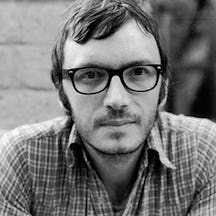Diagnosed with paranoid schizophrenia, artist and poet Tilney1 has lived most of his life in a desperate battle with his symptoms and the side effects of medication. Here Jim Mortram uses his own compassionate observations and Tilney1’s words to portray his situation.
The man who remembers everything
Photography by J A Mortramaverage reading time 8 minutes
- Photo story
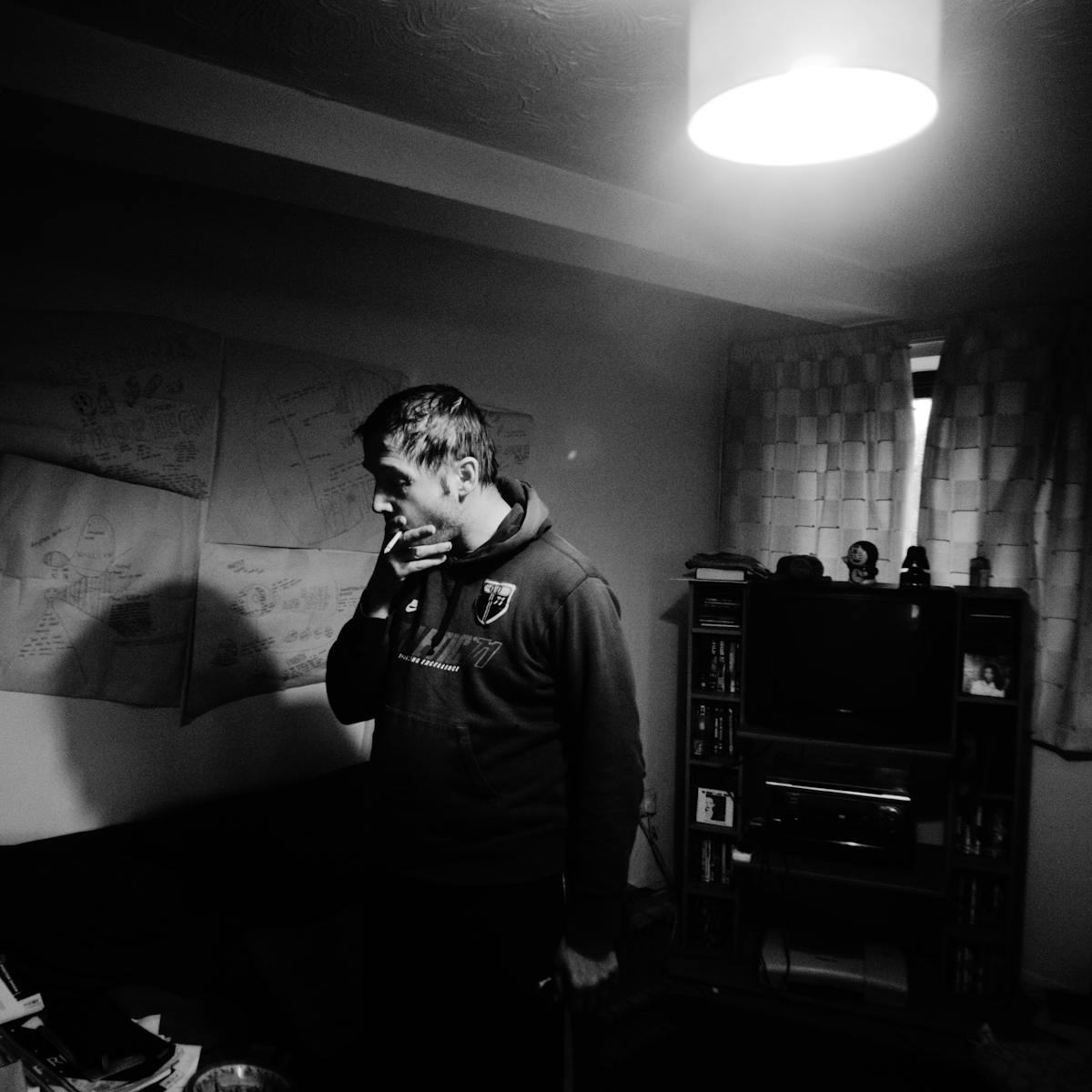
Imagine an internal strobe light that flashes up the detritus of a life lived endlessly. Such things we bury within us. Such fears, voices, seeming insignificances, memories and scars.
Imagine there might be a code, a purpose, a line through the very heart of all the events and shadows of your life. Imagine sewing and stitching every element of your personal history together in an attempt to understand the present so obsessively that the past becomes your every waking moment. Loud, bright and clear. In focus.
Imagine you can remember everything, every detail of every experience. Imagine these are the thoughts that occupy you, inhabit you and you can’t turn their volume down.
Creating a day-to-day chronicle
I first began to document the artist and poet Tilney1 in 2009 while I was volunteering at a local drop-in mental health arts group and photographing its members and their stories. Both his story, and the creativity and honesty of his work left a huge impression upon me. We decided together to document his day-to-day life.
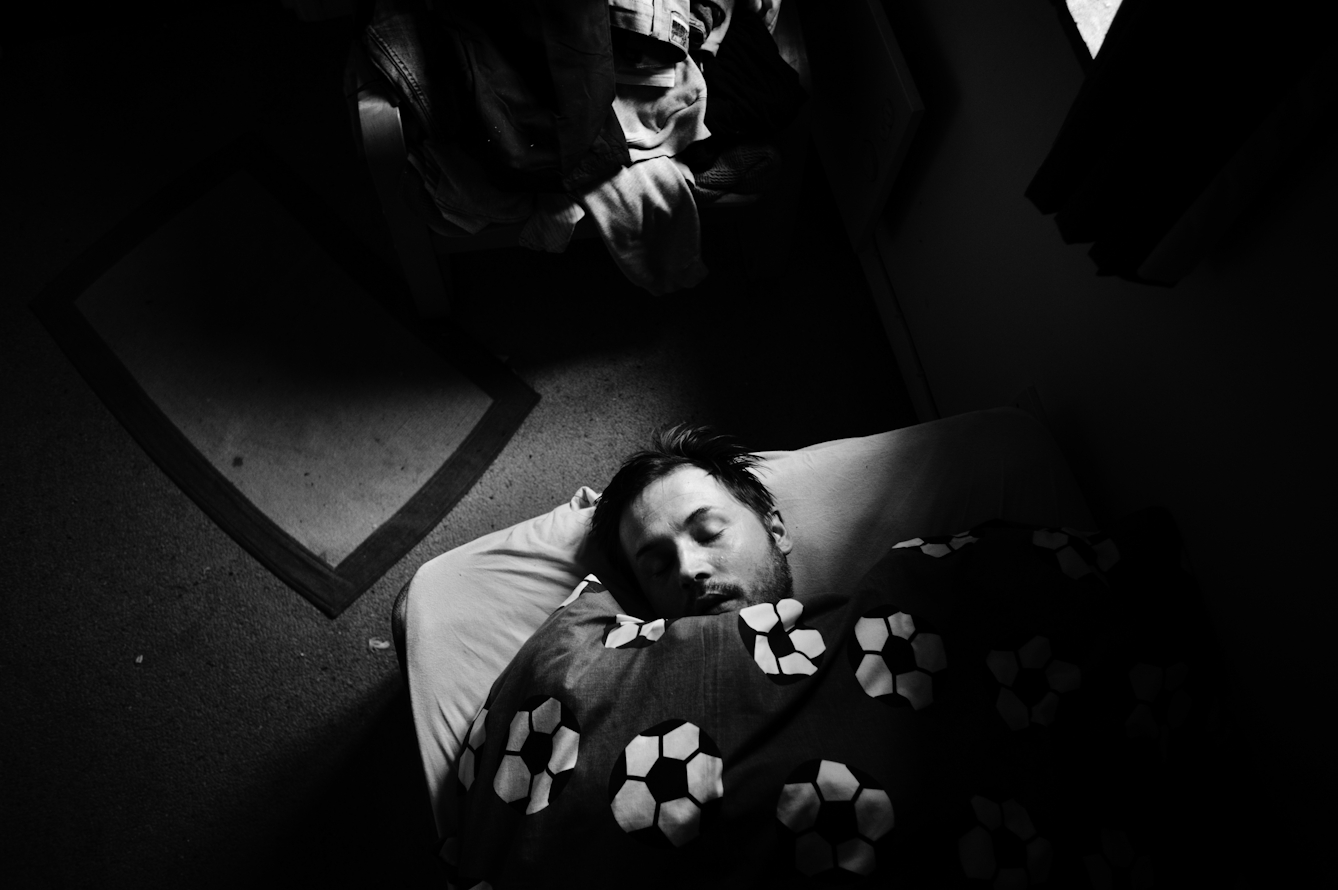
After being prescribed the wrong medication, as well as being overmedicated, he spent ten years in bed. Ten wasted years.
Tilney1 started having problems at 13 and was diagnosed at 17 with schizotypal and obsessive-compulsive disorders and then later with paranoid schizophrenia. He fought to retain normality but succumbed to the increasing volume of his internal narratives. He was sectioned. After being prescribed the wrong medication, as well as being overmedicated, he spent ten years in bed. Ten wasted years.
“I do try to be an amazing person, though. I try and find inspiration in my illness. I never chose to be mentally ill, you know? It was never a lifestyle choice.”
I never chose to be mentally ill, you know? It was never a lifestyle choice.
“As soon as I got there I looked round and thought to myself, ‘What is this going to do to me, being in a mental hospital?’ They asked me if I smoked and I said, ‘No.’ I’d given up. Now look at me: I smoke endlessly.
“There were benches all around the place, a TV and a stereo, a place where you have your meals and all the beds. I was in there for about a month. I slept in a room by myself or sometimes in a room with other people. I remember one woman shouting, ‘I don’t want to be standing here like a caged animal!’ Then I shouted, ‘Does the world know what we are talking about yet?’
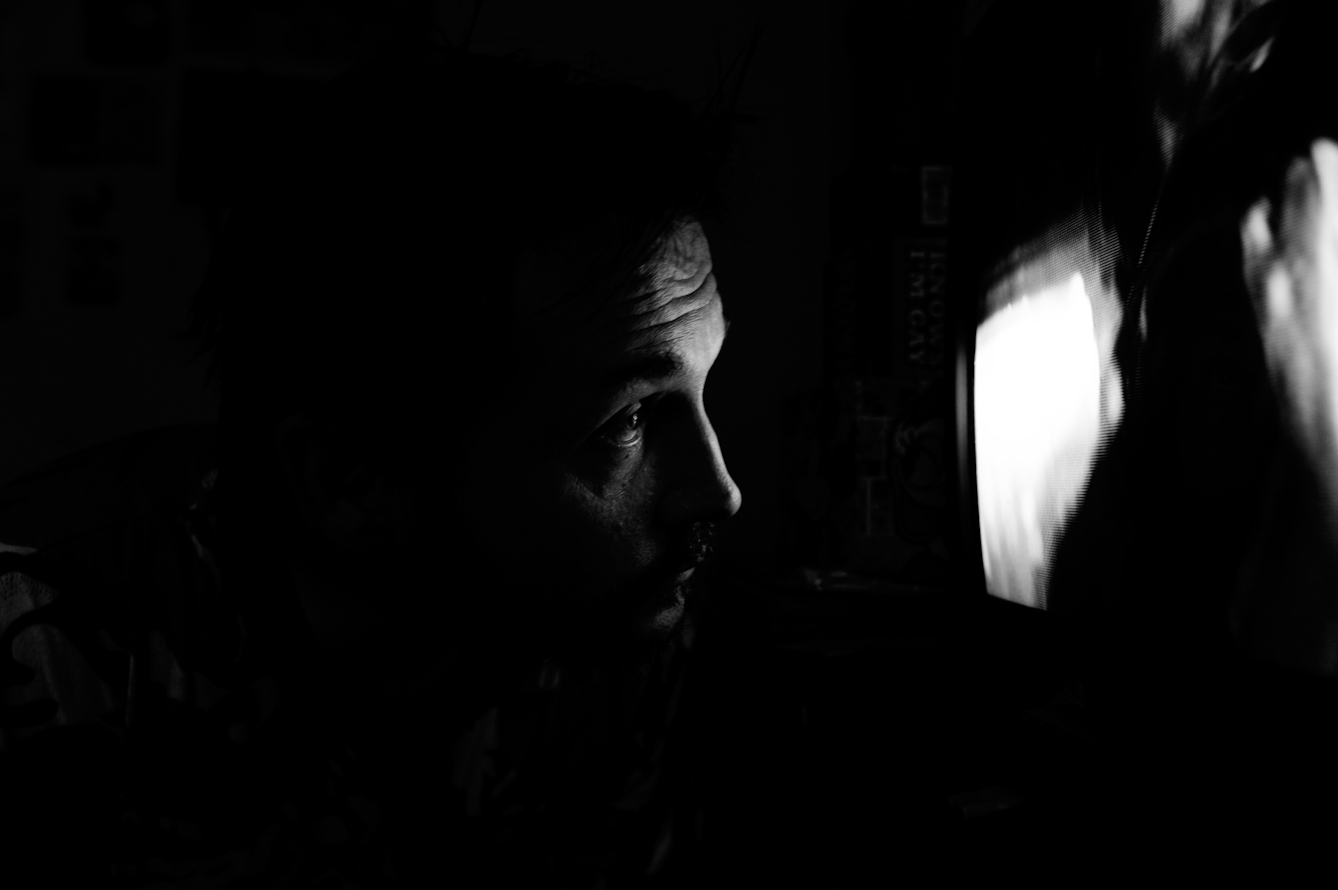
“When I was completely and utterly depressed but, like, a nice depression, I was still able to take films in, but I was watching them all on my own.”
“I am on the fringe of society and I remember everything, everything said and done while sectioned in hospital and it’s just, just terrifying. I remember everything I ever said in every workplace, everything that’s been said to me, everything said to me within the mental health system. It has been just going round and round and round within my mind, all the time and nothing stops the loneliness. Nothing.”
“My sleep pattern got fucked up after I was sectioned and put in hospital. I just can’t switch my mind off and the loneliness gets to me. I’m just constantly misunderstood.
“When I was in Hellesdon [mental health hospital] this nurse was constantly staring at me, so I said, ‘What the fuck are you looking at?’ and he said, ‘Travis,’ making out I was some crazy Travis Bickle character [the protagonist from the 1976 film ‘Taxi Driver’].
“I could barely talk. It was terrifying, crazy and was all down to those first injections, it was the medication causing all of it… that’s the most despairing thing, you know? It’s like I didn’t know I existed for ten years.”
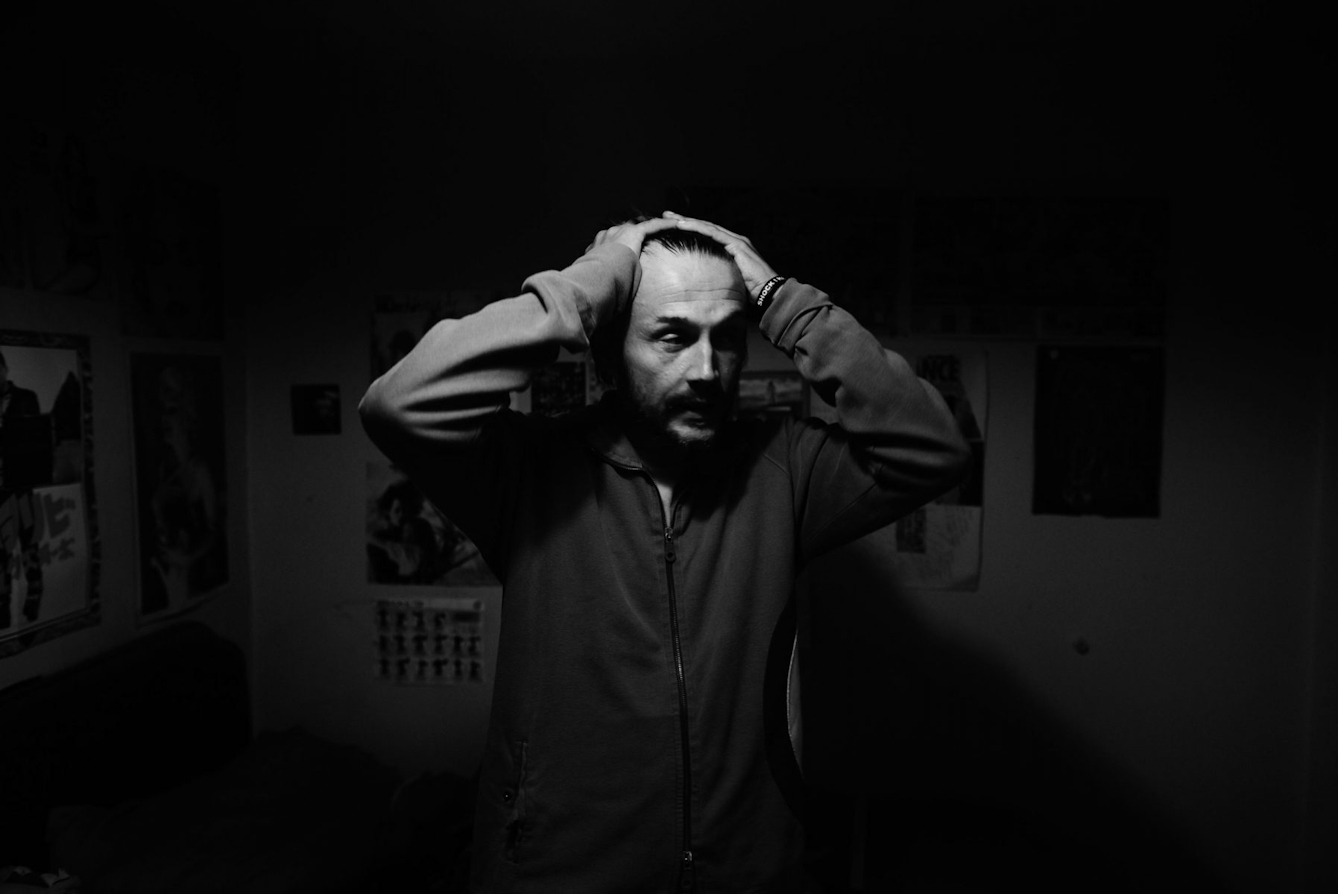
A moment of desperation, almost always enhanced by the stress and pain of relentless loneliness.
An intervention from the crisis team
A crisis team was called to admit Tilney1 to the psychiatric hospital. He had voluntarily visited his local GP as the volume of his schizophrenia symptoms grew louder after missing his medication for weeks.
Tilney1 had received no regular visits to ensure his wellbeing, and his landline telephone had been cut off. He desperately needed the contact and support from the mental health helpline provided by Mind, but was trying to regulate his calls, as they were costing him a fortune on his mobile. The stress of spiralling ever deeper into debt was becoming impossible to live with.
A record number of patients are dying unexpectedly each month at the troubled mental health trust in Tilney1’s area, despite years of reassurances and reviews into the problem. Eighty-six men and women who had been cared for by the Norfolk and Suffolk NHS Foundation Trust (NSFT) died unexpectedly from January to May 2016. In just two months, 21 people died. An unexpected death is classified as a death where the cause could not be anticipated. It could be natural causes, suicide, a physical illness or an accident, and includes anyone who has been treated by the trust in the six months before their death.
“Since I came out of hospital I just can’t stand up straight for longer than two minutes. I used to cycle every day. I can’t do that now because I’m so tense all the time. I started to go to the gym, but when I was there I caught a glimpse of myself in the mirror and just thought: ‘Why do I look so unhappy?’ I’m sure it’s the medication. I used to smile before the medication. I used to be happy."
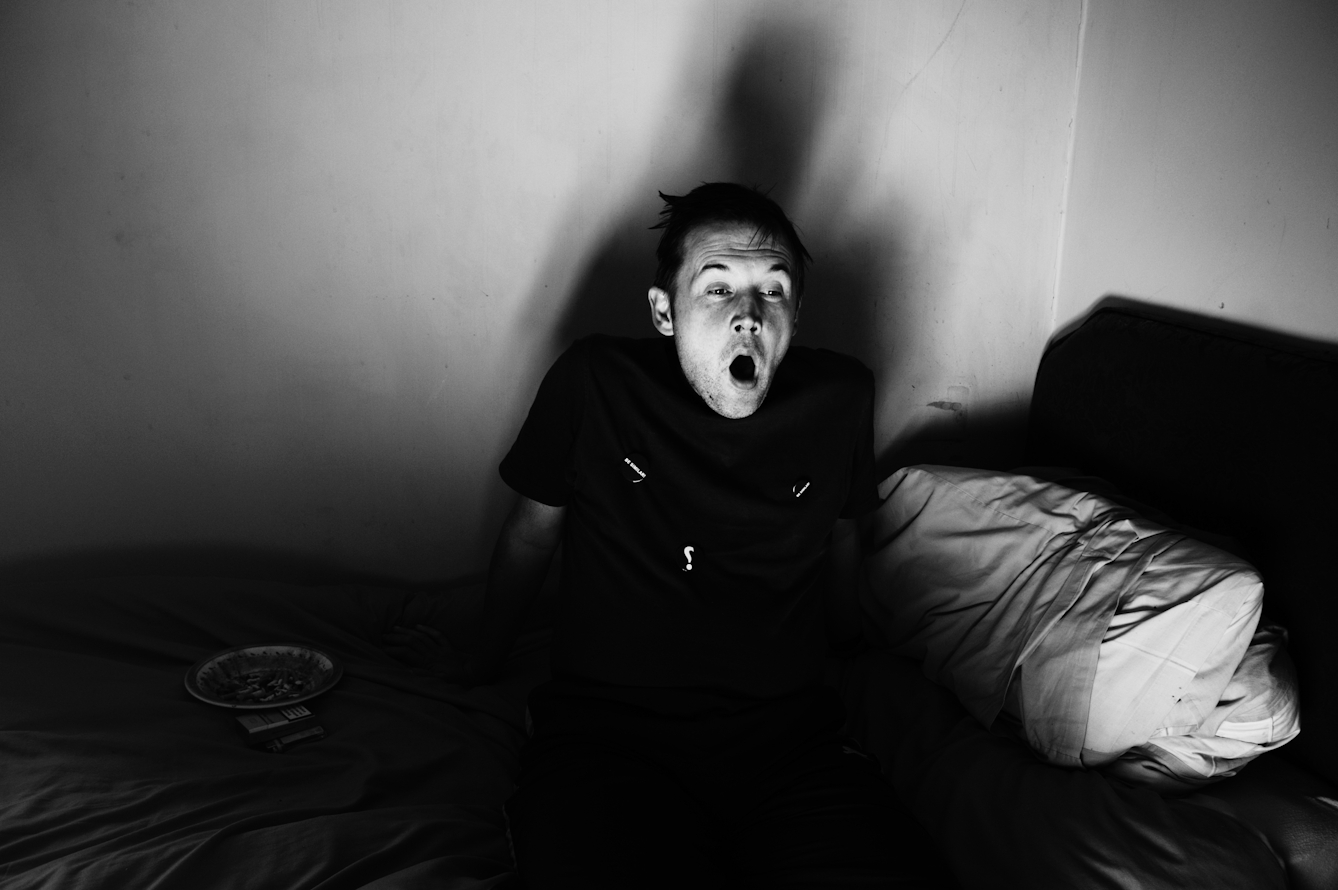
Exhausted.
I’m not a scrounger
“How can I be a scrounger when I had no idea benefits existed? I had no idea about Disability Living Allowance; no one told me anything about that. All I wanted to do was leave Tesco’s, as working nights was doing my head in. I knew it was making me worse, but I was so worried I’d be on Jobseeker’s [Allowance]. I mean, I couldn’t take care of myself at all; I’d holes in my shoes, sores on my feet.”
“I got scared as I’d had some crap in the street said to me, but I had to go into town to visit the bank, just to see if my benefits had been paid in. From the letters, I couldn’t understand them, so I did not know if they [the benefits] had been paid in, or they had been cut, or anything. It’s really stressful, it terrifies me."
It was as though I was watching a man drowning beneath the ice. I see him hitching for breath, chest heaving, eyes wild, fingers whipping at the indifferent, almost invisible, wall above. I can do nothing but witness.
I am as trapped in these moments as he is imprisoned below, our eyes now connected. His fear, his absolute and consuming terror is loud within his gaze, as loud, I imagine, as his frozen-water screams, muted by the barrier between us.
His fear resonates, pulsates with the realisation that we are both completely aware of what is happening and both completely helpless to alter a single fucking thing.
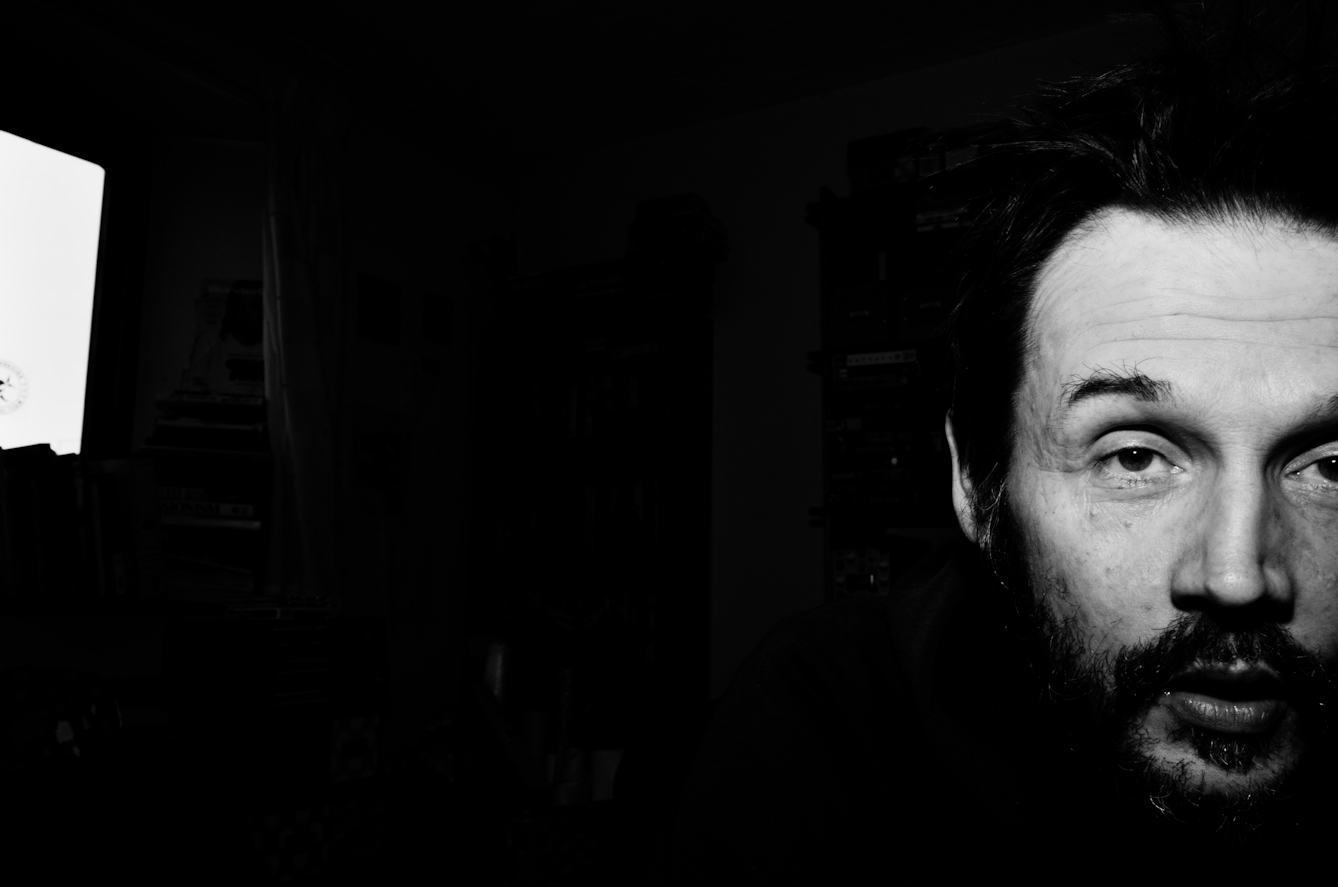
“Basically, after my original CPN [community psychiatric nurse] left, in my loneliness, things started to go wrong.”.
It was watching time run out.
It was watching a trapped man caught in the throes of desperation.
It was watching a car crash in slow motion.
It was watching a plane fall from the sky, aflame.
It was face pressed to the observation slit upon the cell of a forgotten and falsely imprisoned man in solitary confinement.
It was each and all of these things.
It was as though they were all real.
It was, and is, this real.
An inescapable trap
Witnessing Tilney1’s battle with paranoid schizophrenia over the course of the past eight years – his medication changes, his endurance in isolation, his fight to exist and to navigate existence with and often without the regular support of and contact with professional care teams – has been both terrifying and illuminating.
Living alone can often be a vicious limbo. Coupled with Tilney1’s symptoms, fears and the crippling effects of his diagnosis and medications, life for Tilney1 has been brutal.
The community psychiatric nurses’ home visits from crisis teams are dwindling, due to their own battle with staffing and budget cuts to mental health services. This has led to Tilney1 missing medication.
It began slowly. A missed pill here, a skipped pill there. Soon, bags of unopened medication were stockpiled in his bathroom. With each pill missed, more of Tilney1’s character traits, for years suppressed by medication, would rush to the surface. It was a dangerous game, addictive. With each pill missed, a little more self-confidence returned. And a little more, a little more, a little more.
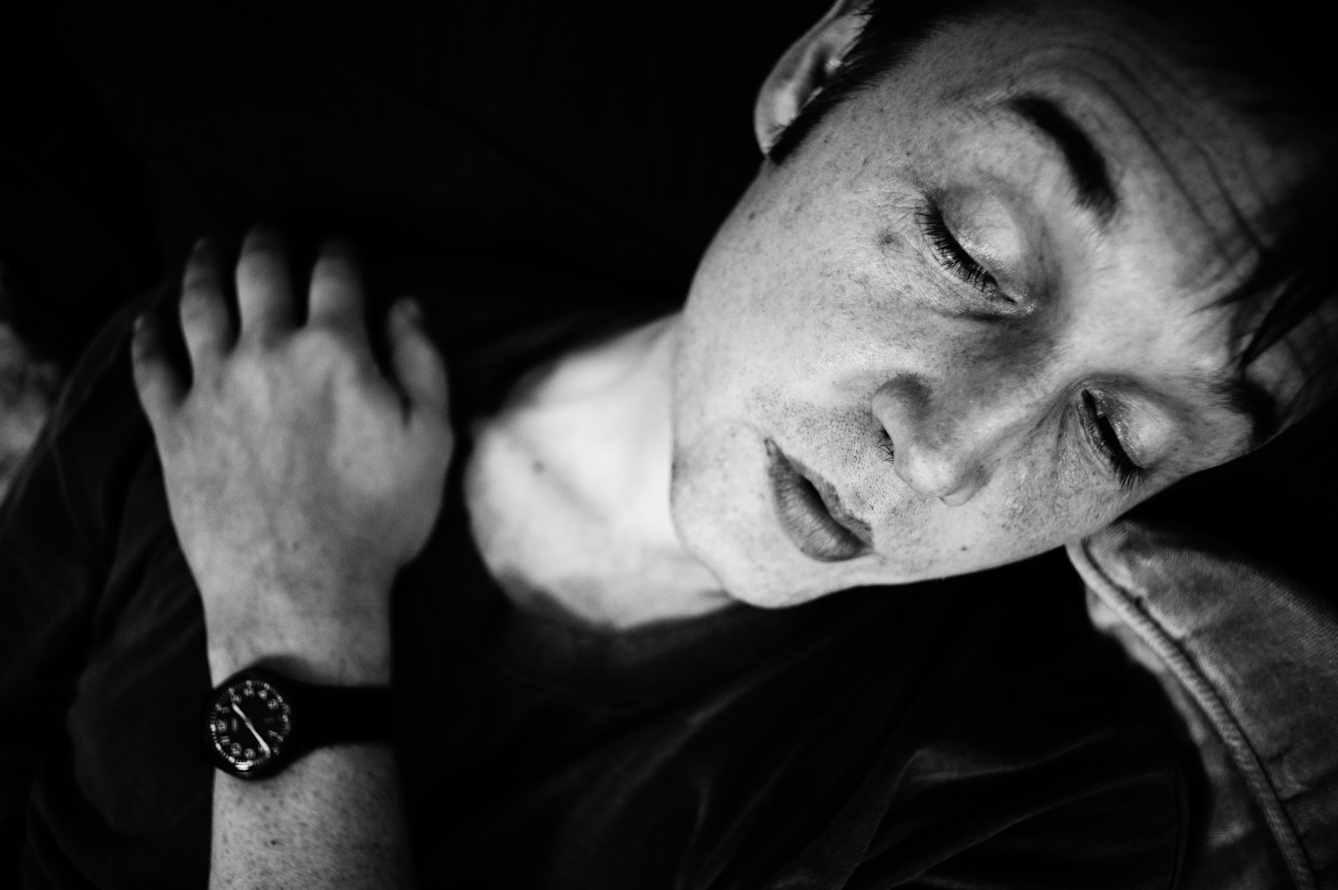
Exhaustion after completing the artwork.
Soon, without the correct and timetabled medication, with no medicinal brakes or physical checks to slow his multiple symptoms, this initial rush of confidence, of euphoria would lead to mania and manic episodes.
It’s a potent and cruel trick, being so close to a remembered self; so soothing to seem to be escaping the trap of the prison within the self, yet all the while being led to the inevitable crash. Especially cruel as Tilney1 was able to watch all this happening to himself, to have that insight, possess that awareness, yet to be completely incapable of intervening, of stopping. He became trapped beneath the ice, screaming for a way out.
“You get depressed about your diagnosis and what people think about you. I always think about it. It is a severe mental illness that I have and if you’re thinking about these things, in the loneliness that I have and you hear all the sounds, see the shapes... it’s very difficult for me.
“It does bother me what people think of me. Don’t call me nuts – you should never call anyone nuts. It hurts, it really does, and with my incredible memory, I remember it for ever.”
About the photographer
J A Mortram
J A Mortram lives near Dereham, a small town in Norfolk. Dereham is no different from thousands of other communities throughout Britain, where increasing numbers of people struggle to survive at a time of welfare cuts and failing health services. He has been photographing the lives of people in his community for over ten years.
